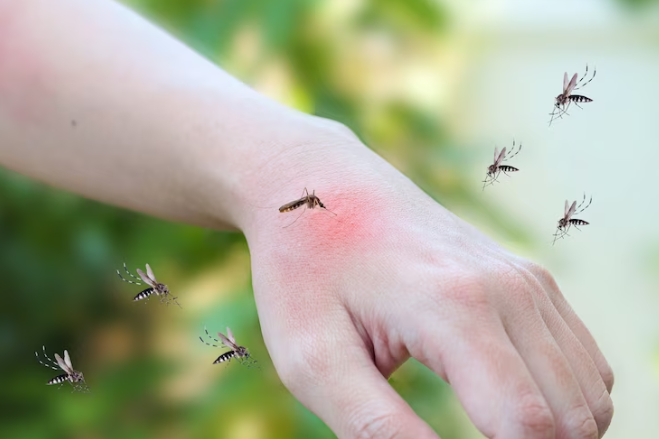Tired of swatting away mosquitoes every time you step outside? You’re not alone. These tiny pests have a knack for ruining backyard barbecues, evening strolls, and just about any outdoor activity you’d rather enjoy in peace. But here’s the good news: mosquito-free zones are changing the game for urban outdoor living. Thanks to innovative removal strategies, cities and neighborhoods are transforming into more comfortable, bite-free environments.
Whether it’s high-tech traps, eco-friendly repellents, or smarter landscaping, people are finding creative ways to reclaim their patios and parks. Imagine sipping your coffee on the porch or hosting a dinner under the stars—without the buzz and itch!
How Do Mosquito-Free Zones Enhance Urban Outdoor Living Experiences?
Urban living can sometimes feel disconnected from nature, with residents limited in how much they can enjoy outdoor spaces due to the challenges posed by pests like mosquitoes. A mosquito-free zone brings a fundamental shift to this dynamic, allowing city dwellers to reclaim their outdoor spaces without the constant annoyance and health risks associated with mosquitoes.
Reclaiming Outdoor Spaces
In many cities, parks, gardens, patios, and recreational areas are often underused due to the constant battle against mosquitoes. These pests thrive in warm, humid climates, and they become especially active in the evenings and at night. The introduction of mosquito-free zones allows residents and visitors to enjoy these spaces without the fear of being bitten, making them more appealing and accessible.
- Comfortable outdoor dining: Imagine dining outdoors in a city park or on a restaurant patio without swatting away mosquitoes. Mosquito-free zones create comfortable environments for dining, socializing, and relaxing outside, leading to a more vibrant urban outdoor life.
- Increased outdoor gatherings: These zones foster more community interaction, as people feel more comfortable gathering outdoors. Whether it’s a picnic in the park, a barbecue in a backyard, or a gathering at a local outdoor event, mosquito-free zones enable people to engage in social activities without the constant worry of pests.
Improved Quality of Life
Having access to a mosquito-free zone means that people can spend more time outside enjoying nature and engaging in outdoor activities, improving their overall quality of life. Outdoor spaces become extensions of living areas, creating opportunities for relaxation, exercise, and socialization that might have been limited by mosquitoes in the past.
- Better mental health: Spending time outdoors is known to have numerous mental health benefits, including stress reduction and improved mood. When mosquitoes are no longer a nuisance, people are more likely to spend time outside, benefiting from nature’s positive impact on their well-being.
- Aesthetic improvements: Mosquito-free zones often coincide with enhanced landscaping and green space development. Creating areas free from pests helps to maintain the aesthetic appeal of parks and recreational spaces, making them more inviting for residents and visitors alike.
What are the Benefits of Creating Mosquito-Free Zones in Cities?
The benefits of establishing mosquito-free zones in urban areas extend beyond personal comfort—they also have substantial public health, economic, and environmental advantages. These zones are not only improving the way we live but are also contributing to the broader well-being of the entire city.
Public Health Improvements
Mosquitoes are more than just an inconvenience; they are vectors for a variety of serious diseases. By reducing the mosquito population in urban areas, mosquito-free zones play a crucial role in improving public health. Diseases such as Zika, West Nile virus, and dengue fever can be transmitted through mosquito bites, and by creating mosquito-free zones, cities reduce the potential for outbreaks and improve the safety of outdoor spaces.
- Reduced disease transmission: With fewer mosquitoes in urban areas, the risk of disease transmission drops significantly, leading to healthier communities and less pressure on healthcare systems.
- Safer outdoor activities: Public health officials recommend limiting exposure to mosquitoes in areas with a high risk of disease. Mosquito-free zones allow residents to enjoy outdoor spaces without having to worry about mosquito-borne illnesses, especially in areas with high mosquito populations.
Enhanced Economic Activity
The creation of mosquito-free zones also has economic benefits. Cities can attract more tourists, increase outdoor dining experiences, and boost local economies by offering safe and enjoyable outdoor spaces. Restaurants, event planners, and businesses that rely on outdoor venues are particularly keen on promoting mosquito-free zones to ensure a positive experience for their customers.
- Increased tourism and business opportunities: Tourism can thrive when outdoor spaces are safe and enjoyable. Cities can host outdoor events such as festivals, concerts, and markets without worrying about mosquito infestations. Businesses that capitalize on outdoor dining, leisure, and recreation see increased foot traffic and customer satisfaction.
- Boosting outdoor dining culture: Restaurant and café owners can attract more customers by offering outdoor seating in mosquito-free zones. This helps businesses thrive by creating appealing spaces for customers to dine, socialize, and relax.
Environmental Benefits
Creating mosquito-free zones also helps promote environmental sustainability. By using eco-friendly mosquito removal techniques, such as natural predators or biological controls, cities are reducing their dependence on chemical insecticides, which can be harmful to local ecosystems.
- Reduced pesticide use: Traditional mosquito control methods often involve chemical sprays that can have negative impacts on local wildlife, including pollinators like bees. Mosquito-free zones, when managed properly, can reduce or eliminate the need for such chemicals, fostering a healthier environment for plants, animals, and people.
- Promoting biodiversity: In areas where natural mosquito control methods, such as introducing mosquito-eating fish or bats, are used, biodiversity in urban ecosystems is encouraged. This approach helps protect the natural food web and improves overall ecological health.
Why are Mosquito-Free Zones Becoming Popular in Urban Areas?
The growing popularity of mosquito-free zones in urban areas is a reflection of the increasing demand for more comfortable and sustainable living environments. As cities face rising populations, environmental concerns, and climate changes, creating mosquito-free spaces is seen as an effective and proactive solution to multiple urban challenges.
The Rising Demand for Outdoor Living Spaces
As urban areas become denser, the demand for outdoor living spaces has grown. More people are spending time outdoors, whether it’s in parks, gardens, or backyards, and cities are responding by designing spaces that encourage outdoor activities. Mosquito-free zones enhance these spaces, making them more attractive and usable year-round.
- Urbanization and outdoor lifestyles: As urbanization continues, more people are turning to their outdoor spaces as an escape from the hustle and bustle of city life. Mosquito-free zones support this shift, enabling people to make the most of their environment and enjoy the benefits of nature without the discomfort of mosquitoes.
- Climate change impact: Warmer temperatures due to climate change are contributing to extended mosquito seasons, making it even more important for cities to find ways to control mosquito populations. Mosquito-free zones offer a practical response to this issue.
Technological Advancements in Mosquito Control
Advancements in mosquito control technology are also contributing to the rise of mosquito-free zones in cities. New methods, such as mosquito traps, biological controls, and genetic modifications, are proving to be more effective, environmentally friendly, and sustainable compared to traditional chemical treatments.
- Genetic modification: Innovative techniques, such as genetic modification of mosquitoes to reduce their population or eliminate the ability to carry diseases, are providing new, more sustainable ways to control mosquito numbers. These technologies can be used in mosquito-free zones to ensure long-term effectiveness.
- Eco-friendly methods: Technologies that use natural predators or biological agents to control mosquito populations are becoming more common. These methods minimize harm to the environment while providing long-lasting mosquito control in urban areas.
How Does Mosquito Removal Improve Outdoor Activities in Urban Environments?
The presence of mosquitoes has long been a barrier to enjoying outdoor activities, particularly in urban environments where green spaces and recreational areas are limited. By effectively removing mosquitoes from these areas, cities are fostering an environment where outdoor activities can thrive, promoting healthier lifestyles and a stronger sense of community.
Improved Outdoor Recreation
Mosquito-free zones open the door to a variety of outdoor recreational activities that would otherwise be hindered by pests. Whether it’s a walk in the park, a picnic with friends, or a family gathering, having a mosquito-free environment allows people to engage in outdoor activities without the constant annoyance of bites and itching.
- More outdoor fitness: With fewer mosquitoes, people are more likely to engage in outdoor activities such as jogging, cycling, and yoga in urban parks and trails. This contributes to healthier lifestyles and better physical fitness for city dwellers.
- Enhanced family fun: Parents can relax and enjoy outdoor activities with their children, knowing that their little ones are safe from mosquito bites. This makes public parks and outdoor spaces more family-friendly and accessible to everyone.
Social Interactions and Community Engagement
Mosquito-free zones contribute to more vibrant, social outdoor spaces. People are more likely to engage in outdoor social activities, whether it’s dining at an outdoor café, attending a community event, or simply enjoying a park with friends and family. This enhances the sense of community and encourages people to spend time outside, fostering stronger social connections.
- Outdoor events and festivals:Mosquito-free zones make it easier for cities to host outdoor festivals, concerts, and public gatherings, which promote community interaction and provide opportunities for local businesses to thrive.
- Public health benefits: By creating spaces where people can spend more time outdoors, cities contribute to the mental and physical well-being of their residents. These zones encourage outdoor activity, improve air quality, and create a sense of connection with nature, all of which contribute to better overall health.
Mosquito-free zones are revolutionizing urban outdoor living by enhancing the enjoyment, safety, and functionality of public spaces. These zones provide significant health, social, and environmental benefits, making them an essential part of modern urban planning. As cities continue to grow and more people seek to maximize their outdoor experiences, mosquito-free zones are emerging as a vital solution that improves quality of life and fosters healthier, more vibrant communities.
How Pete’s Pest Patrol Creates Safer, Healthier Spaces for You
At Pete’s Pest Patrol, we specialize in providing effective and eco-friendly pest control solutions that give you peace of mind and protect your home or business from unwanted invaders. Our team of trained professionals ensures that your property is not only pest-free but also safe and comfortable for you and your family or employees.
- Comprehensive pest control: Whether you’re dealing with mosquitoes, rodents, or termites, our team tailors treatments to your specific needs, ensuring your environment is safe and pest-free year-round.
- Eco-friendly methods: We utilize environmentally responsible pest control solutions that target pests without harming the surrounding ecosystem, giving you the assurance that your home and environment are being cared for.
- Preventive services: Our proactive pest management services help keep your property protected from future infestations, saving you time, money, and stress in the long run.
Contact Pete’s Pest Patrol today to safeguard your home or business with our professional, reliable, and eco-friendly pest control services! Let us help you create a pest-free environment that you can truly enjoy.

